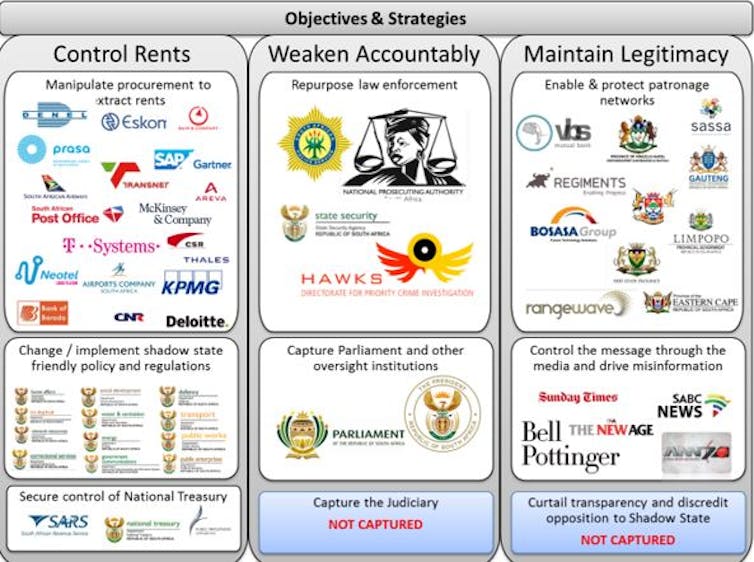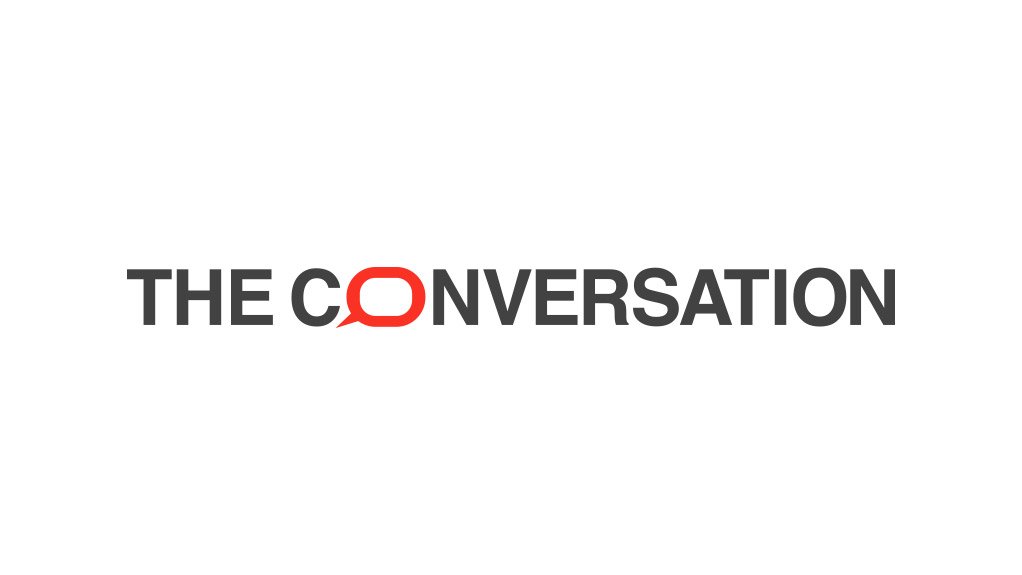![]() It’s been almost a year since the Commission of Inquiry into allegations of state capture in South Africa began to hear testimony. Also known as the Zondo Commission, it is headed by Deputy Chief Justice Raymond Zondo, who has listened to 130 days of live testimony from more than 80 people. It is probing allegations that the government was captured by private business interests for their own benefit.
It’s been almost a year since the Commission of Inquiry into allegations of state capture in South Africa began to hear testimony. Also known as the Zondo Commission, it is headed by Deputy Chief Justice Raymond Zondo, who has listened to 130 days of live testimony from more than 80 people. It is probing allegations that the government was captured by private business interests for their own benefit.
During it all, echoes of former South African President Jacob Zuma’s alleged involvement have become deafening. Through various testimony, Zuma has been directly implicated by current and former senior government officials and ministers. They have alleged, among other things, that Zuma leaned on them to help the Guptas – Zuma’s friends who are accused of having captured the state – and to fast-track a nuclear deal with Russia that would have bankrupted South Africa. Also, the governance failures that have resulted in the looting of parastatals, have been blamed squarely on state capture.
Zuma’s turn to give evidence has arrived. Not only does he deny that state capture exists – he’s called it a fake political tool – he’s also cast himself as a hapless victim.
Refusing to engage the concept, he said:
There are people who did things to others in one form or the other‚ and you can call it in any other name‚ not this big name “state capture”.
The allegations against him are that he orchestrated a network of corruption that hijacked South Africa’s developmental project.
The importance of Zuma testifying before the commission should not be underestimated. It will set a precedent that will either show that those that abuse power will be held to account or that the cycle of impunity will continue, reinforcing the unjust systems that enable state capture.
Understanding state capture
Originally, the theoretical concept of state capture referred to a form of grand corruption. In the case of South Africa, it can be defined as the formation of a shadow state, directed by a power elite. This shadow state operates within – and parallel to – the constitutional state in formal and informal ways. Its objective is to re-purpose state governance, aligning it with the power elites’ narrow financial or political interests, for their benefit.
State capture rests on a strategy to align arms of state and public institutions and business to support rent-seeking.
In the events being scrutinised by the commission, the evidence being led shows that actors made sure that all the conditions were created and processes lined up to extract more money than the actual goods and services cost as a way to enrich themselves.
This reveals the systemic nature of state capture. To be successful, it requires the deep cooperation and complicity of the highest office in the land to secure rents, hollow out accountability and maintain legitimacy.
The graphic below, by Robyn Foley, a senior researcher the Centre for Complex Systems in Transition at Stellenbosch University, outlines the alleged strategy of capturing state-owned enterprises, installing compliant officials, undermining the functional operation of government institutions and discrediting critical voices.

The graphic points to a presidency where state capture became syndicated within the state and rent-seeking. Capture is a radical departure from the norms and values upon which a democratic developmental state depends. Like most liberal democracies, South Africa’s constitution provides for checks and balances that are supposed to limit such abuses of power. When these checks are undermined, and the balancing forces are biased, the system becomes a reinforcing loop of bad behaviour, spiralling towards an oligarchic authoritarian state.
In other words, a silent coup.
How did we get here?
Zuma set his presidency on the ticket of state-sponsored development. This entailed using state-owned enterprise procurement, tighter state control and Black Economic Empowerment to realise what has been termed radical economic transformation.
But it was precisely within this agenda, and the governance arrangements that supported it, that seeds for state capture were sown. Tighter state control meant that the flows of information were controlled by only a few, while state-owned enterprises used the biggest share of procurement rands.
There was already billions moving through these state owned enterprises and radical economic transformation was the perfect ideology to bring it all together.
But black business hardly benefited at all from the profits of state capture. If radical economic transformation were to be effected through the constitutional state, it would be enacted through economic policy that supported livelihoods and employment creation. In addition, state capture has hollowed out the very institutions that would have been able to realise radical economic transformation through the constitutional state.
The unravelling
Numerous events over the past decade point to a slowburn abuse of key state resources. One of the first was the irregular landing of a civilian plane at Waterkloof Military Air Base in 2013. The plane was carrying foreign guests to a family wedding hosted by Zuma’s friends, the Gupta family.
Two years later evidence emerged that millions of rands of public funds had been used illegally for upgrades to the then president’s Nkandla homestead. This spending was outlined in a report prepared by the former Public Protector Thuli Madonsela.
The turning point came only months after the release of the Public Protector’s State of Capture report, when Zuma fired then Finance Minister, Pravin Gordhan and his deputy, Mcebisi Jonas in March 2017. The events sent a shock wave through South Africa, triggering mass protests and mobilised public outrage, forcing Zuma to initiate the robust inquiry into state capture.
Our unpublished research shows that, to date, there have been 28 public state capture investigations, inquiries and commissions. There are also 118 outstanding cases of corruption involving government officials and politicians in the intray of the newly appointed head of the country’s National Prosecuting Authority, Advocate, Shamila Batohi.
The true cost of the damage cost by state capture, including the destruction of institutions and lives, is unquantifiable.
South Africans may well be seduced by the prospect of Zuma taking the stand at the Zondo commission. But he was not alone in driving the state capture project. And, the network of actors and influencers is extensive and still very much active. This much has been laid bare in testimony before the commission.
Nina Callaghan, Robyn Foley, senior researchers at the Centre for Complex Systems in Transition at Stellenbosch University, contributed to the article.
Written by Mark Swilling, Distinguished Professor of Sustainable Development, Stellenbosch University
This article is republished from The Conversation under a Creative Commons license. Read the original article.
EMAIL THIS ARTICLE SAVE THIS ARTICLE ARTICLE ENQUIRY
To subscribe email subscriptions@creamermedia.co.za or click here
To advertise email advertising@creamermedia.co.za or click here











